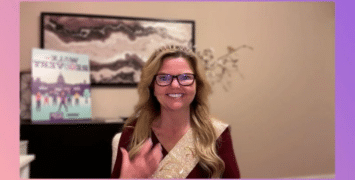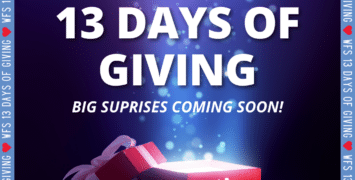Your cart is currently empty!
Monday Thoughts 7/23/2018
“Done is better than perfect.” -Sheryl Sandberg
“Expect problems and eat them for breakfast.” -Alfred A Montapert
“If you can’t go straight ahead, you go around the corner.” -Cher
Statement #4
“Problems bother me only to the degree I permit.”
I now better understand my problems. I do not permit problems to overwhelm me.
Before sobriety and New Life, attempts at solving problems involved running away, denial and oftentimes, breaking down in tears. I felt so inept at solving problems that a mere inkling of a problem brought intense anxiety which I tried to soothe with alcohol. Of course, this never worked; the problem was still there plus now additionally, the hangover.
In our Program booklet, our founder, Jean Kirkpatrick, Ph.D., writes, “Learning that I didn’t have to react to everything with upsetting emotions was an important part of my recovery.” Discovering middle ground emotions assist in developing problem solving skills which can reduce overwhelming emotions. Overtime, these new skill sets can lead to increased feelings of balance.
Sobriety and recovery encourage problem solving. No matter where you are on this 4C journey, a brief reflection on the first month of sobriety brings problem-solving to light. Challenging thoughts about drinking or using while embracing new tools and skills is Statement #4 in action. From this New Life beginning, the satisfaction of remaining sober is born and can fuel decision making. This change in direction opens up endless possibilities.
Hugzzz
Karen
Hi 4C Women,
Over the years, I have started using the word “concern” as it always makes me feel that I am in a problem-solving mode rather than just worrying about anything and everything. Statement #4 has helped me understand that worrying solves nothing although it can be the catalyst for awareness of a real issue that needs problem-solving/decision-making or wasting valuable time for something I have no control over. I once read a definition by Dr. Edward Hallowell who wrote Worry: Hope and Help for a Common Condition. I haven’t read the book but his definition stuck with me. “Worry is nature’s alarm system. It’s sort of like blood pressure. You need some level to be alive and healthy. It’s when the alarm goes off for no reason or the level stays too high for too long – that’s what Dr. Hallowell calls “toxic worry” – that problems arise. When asked how do we know when our worrying has crossed the line, the answer was to look closely at the sources of our worry when it holds us back from doing what we want, from making decisions or living as fully as we’d like. I believe those are great guidelines to help us recognize the difference between worrying and concern.
Dr. Hallowell suggests:
- Never worry alone: Making contact with another person and sharing your concerns is often the best way to combat incessant worry.
- Get the facts: A lot of times, worry is based on lack of information or misinformation. Simply gathering data can help you develop a plan of action or even decide you don’t need to worry after all. (I suggest also contacting a human being, not just the internet, with the knowledge you need. -Dee)
- Make a plan of action: By making a plan, you assume control of the situation. “Worry loves a passive victim.” The more you put yourself in control and reduce your vulnerability, the less you’ll feel toxic worry.
The following checklist is a tool to help us understand the word power of “worry” and “concern” and how it can help us move in the direction of problem-solving. It is from Ascent Advising website.
When considering the differences between worry and concern, consider these distinctions:
- Worry distracts us; Concern focuses us.
- Worry disables planning; Concern helps us plan.
- Worry blurs our vision; Concern clarifies our purpose.
- Worry tends to give up; Concern perseveres.
- Worry exaggerates; Concern pinpoints problems.
- Worry focuses on self; Concern cares for others.
Thirty years ago, when I first discovered WFS, each one of the 13 Statements of Acceptance for a New Life dramatically changed my life and Statement #4 was definitely a huge motivator in relieving me of my “Queen of Worry” crown. What a relief. I hope you will consider the suggestions and definitions above and learn how to change worry into concern and how to begin making an action plan with the input of those you trust!
Bonded in not permitting problems to overwhelm us,
4C WFS member



